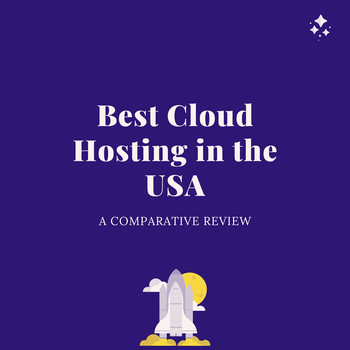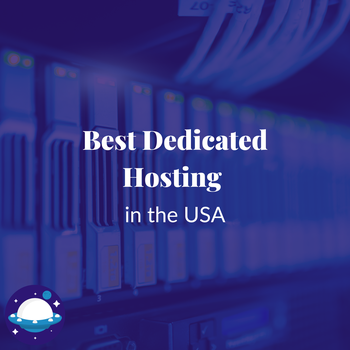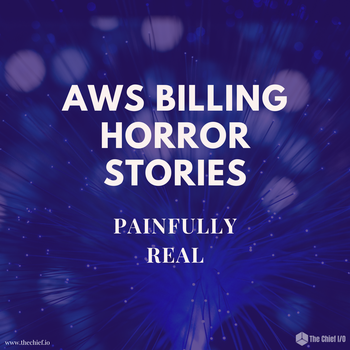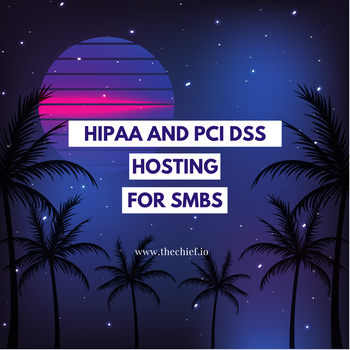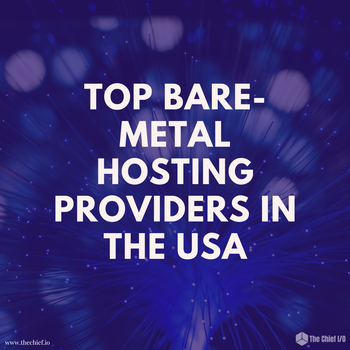HIPAA and PCI DSS Hosting for SMBs: How to Choose the Right Provider
in DevOps , Cloud Computing
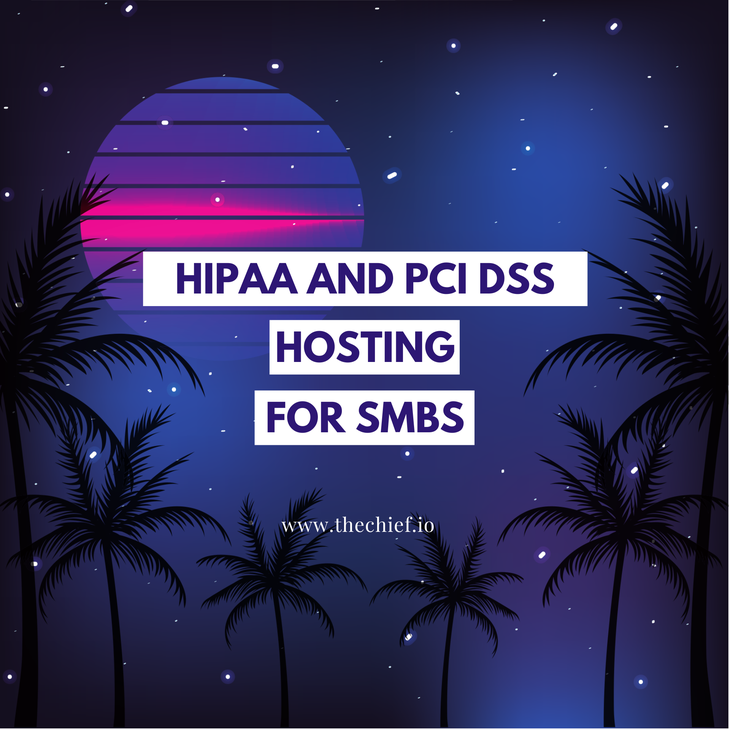
HIPAA protects patient data; PCI DSS protects payment data. Many small and mid-sized businesses now handle both, creating a need for dual-compliant hosting that meets both standards in one environment. The best providers combine verified audits, built-in security, knowledgeable support, predictable costs, and audit-ready operations.
Understanding HIPAA Compliance for Small Businesses
HIPAA wasn't born as a tech regulation, but it became one. And for companies choosing where to host their systems, it’s now one of the most important regulations to understand.
When President Bill Clinton signed the Health Insurance Portability and Accountability Act (HIPAA) in 1996, it wasn’t about cybersecurity. It was about people. The goal was simple: make health insurance portable when workers changed jobs and make it easier for healthcare providers and insurers to share information safely. But as hospitals, labs, and clinics moved records online in the late ’90s, a new problem appeared — sensitive patient data was traveling across networks that were never built for privacy.
So HIPAA evolved. The Privacy Rule (2003) gave patients control over who could access their health data. Two years later, the Security Rule gave the law teeth: encryption, access control, and audit trails became mandatory for any system handling electronic patient information. From that point, HIPAA didn’t just apply to hospitals or insurance companies — it reached into servers, data centers, and every hosting provider that touched protected data.
Why HIPAA Exists
At its core, HIPAA protects Protected Health Information (PHI) — any data that can identify a patient and link them to their medical history, treatments, or payments. Before HIPAA, there were no consistent rules for storing or sharing this data. Many healthcare offices relied on unsecured systems or paper records that could be lost, stolen, or easily copied. A misplaced laptop or a forgotten hard drive could expose thousands of patient records overnight.
HIPAA changed that. It made privacy and security non-negotiable. Whether you’re a major hospital or a small clinic that stores a few dozen patient files, the same standards apply the moment you handle PHI. For many small organizations, that means finding a hosting provider capable of meeting those standards.
Hosting and HIPAA Compliance — What You Need to Know
HIPAA doesn’t name vendors or specify exact software. It defines safeguards — principles that guide how systems must protect data. These are divided into three layers:
- Administrative safeguards: the human side — employee training, clear access rules, and internal policies.
- Physical safeguards: securing the hardware — locked facilities, redundant backups, disaster recovery plans.
- Technical safeguards: protecting the data itself — encryption, authentication, and logging every access.
Imagine HIPAA as a series of locks around your data. The first lock is policy (who’s allowed in). The second is the infrastructure (the data center and servers). The third is the alarm system (monitoring, logging, and encryption).
When your patient data lives on a hosted server or in the cloud, that infrastructure must encrypt it, monitor access, and maintain detailed records. That’s why HIPAA-compliant hosting exists — specialized environments built to meet these security rules. To make it official, the hosting company signs a Business Associate Agreement (BAA) — a legal document stating that they share responsibility for protecting your patients’ information.
Understanding PCI DSS Compliance for Small Businesses
Protecting patient data is only half the story. Once a business starts accepting payments — through an online store, an appointment portal, or a simple checkout page — another rulebook appears: the Payment Card Industry Data Security Standard, or PCI DSS.
PCI DSS didn’t come from lawmakers unlike HIPAA. It was born from chaos. In the early 2000s, payment card fraud was out of control. Every card brand had its own security rules, and many businesses were storing unencrypted data without even realizing it. One of the most damaging breaches happened in 2003, when BJ’s Wholesale Club, a U.S. retailer, was hacked because customer card numbers were kept in plain text on their systems. Millions of cards were compromised, and banks had to reissue them at massive cost. Incidents like that pushed the industry to act.
In 2004, the five major card brands — Visa, MasterCard, American Express, Discover, and JCB — joined forces to create the Payment Card Industry Security Standards Council (PCI SSC). Their mission was to create one clear, universal set of rules for everyone who touches payment data. The result was PCI DSS.
Why PCI DSS Exists
Before PCI DSS, small businesses were the easiest targets. Outdated software, reused passwords, and unsecured Wi-Fi networks made credit card theft alarmingly easy. The standard was designed to stop that. It gives companies a clear, enforceable checklist for how to protect customer payment information.
And yes, it applies to everyone. There’s no “too small” exemption. If you process, store, or transmit cardholder data, PCI DSS is your responsibility — even if you only handle a few transactions each month.
How PCI DSS Works — Explained Simply
PCI DSS is a framework for securing cardholder data. It lists 12 core requirements, but here’s the idea in plain language:
- Build and maintain secure systems: use firewalls, apply patches, and don’t keep vendor-default passwords.
- Protect stored data: encrypt it, and delete what you don’t need.
- Control access: limit permissions and track who does what.
- Monitor and test regularly: run security scans and review logs.
- Document everything: from how you handle payments to what happens if something goes wrong.
It's like a chain of locked doors. Each one is there to keep intruders from getting to the most valuable thing — your customers’ payment information. If any door stays open — maybe an outdated plugin or a weak admin password — the whole system is at risk.
What It Means for Businesses Looking for Hosting
For companies searching for a good hosting provider, PCI compliance should be near the top of the checklist. A strong host can take on much of the heavy lifting — network isolation, intrusion detection, encrypted storage, and detailed logging. These are not optional extras; they are the backbone of compliance.
Look for hosting environments that have been audited for PCI DSS and can provide proof, often in the form of an Attestation of Compliance (AOC). Ask about segmentation between public and private networks, how often security patches are applied, and what kind of monitoring tools are in place.
A reliable PCI-compliant hosting provider doesn’t just protect your payment data — it protects your business’s reputation. When your website or platform runs on an environment built for compliance, you reduce your risk of breaches, downtime, and customer distrust.
The Case for Dual Compliance
For most small and mid-sized businesses, HIPAA and PCI DSS aren’t separate boxes to check — they overlap. A small clinic, a wellness app, or even a healthcare startup that takes payments online sits right in the middle of both. They handle Protected Health Information (PHI) and cardholder data together, which means they must respect the privacy demands of HIPAA and the security expectations of PCI DSS.
At first, that sounds heavy — two sets of rules, two audits, two piles of paperwork. But if you peel it back, HIPAA and PCI share the same bones: encrypt everything, control who gets access, watch for intrusions, and keep clear records. The difference is really just the focus — HIPAA protects your health story, PCI protects your wallet.
That’s why dual-compliant hosting makes so much sense! It’s infrastructure built to meet both standards at once, so businesses don’t have to run two different systems or play compliance ping-pong. Instead, they work with a host that provides a secure, isolated, and regularly audited environment that covers both sides of the equation.
A dual-compliant host takes care of the essentials:
- Encrypting data whether it’s stored or moving.
- Separating medical data from payment systems through network segmentation.
- Detecting intrusions, running vulnerability scans, and fixing issues fast.
- Maintaining solid backups and disaster recovery plans.
- Signing a Business Associate Agreement (BAA) and providing proof of PCI certification.
For SMBs, that setup isn’t just about checking legal boxes — it’s about peace of mind. It means fewer moving parts, fewer risks, and a stronger story to tell patients and customers: we take your data seriously.
Some businesses that might consider dual compliance include:
- Private medical clinics and dental offices that let patients pay for visits or treatments by credit card, online or in person.
- Telehealth and teletherapy platforms offering virtual consultations and in-app payment processing.
- Health-tech startups running SaaS tools for appointment scheduling, electronic records, or patient billing.
- Fitness and wellness apps that collect heart rate, sleep, or nutrition data while charging users for premium features.
- Membership-based wellness centers and gyms that store limited medical details (injury notes, body metrics) and process recurring card payments.
- Pharmacies and compounding labs managing prescription records alongside point-of-sale systems.
- Behavioral and mental health practices using secure video calls and digital payment forms.
- Nutrition or weight-management services that track dietary progress, store health assessments, and handle subscription payments.
- Chiropractic and physical therapy clinics using cloud software for patient records and billing.
- Medical billing and revenue cycle management companies that access PHI and card data for clients.
- Home healthcare agencies coordinating visits through mobile apps and accepting online payments.
- Specialty retailers like hearing aid centers, optical stores, or medical equipment suppliers that process patient prescriptions and credit cards.
- And many more...
How to Choose a HIPAA and PCI DSS Hosting Provider
Choosing a hosting provider for HIPAA and PCI DSS compliance is, at the same time, a technical and a trust decision. You're handing over sensitive data, your customers' confidence, and part of your legal responsibility. The right partner can make compliance smooth and reliable. The wrong one can turn it into a never-ending fire drill.
Here's a practical framework that helps small and mid-sized businesses separate marketing promises from genuine compliance capability.
The Five Key Criteria
| Criterion | What to Look For | Why It Matters |
|---|---|---|
| 1. Verified Compliance | Third-party audits (SOC 2/3, HIPAA, PCI DSS AOC) and a signed Business Associate Agreement (BAA). | Real proof protects you in audits - not marketing claims. |
| 2. Security by Design | Encryption, network segmentation, firewalls, intrusion detection, and regular scans built into the environment. | Compliance is easier when security isn't an afterthought. |
| 3. Compliance-Literate Support | Support teams that understand HIPAA and PCI terms, not just uptime metrics. | You need people who speak your auditor's language, not just tech jargon. |
| 4. Predictable Costs & Scalability | Transparent pricing, included backups and monitoring, flexible scaling options. | Compliance shouldn't become a hidden tax as you grow. |
| 5. Audit-Ready Operations | Detailed logs, quick access to evidence, clear documentation. | Saves weeks of prep when audits or assessments hit. |
Providers That Meet the Bar
After applying these criteria, a few providers consistently stand out for HIPAA and PCI DSS-compliant hosting:
| Provider | Best For | HIPAA | PCI DSS | Audit Transparency | Ideal SMB Fit |
|---|---|---|---|---|---|
| Atlantic.Net | Turnkey, managed compliance hosting | ✅ Full | ✅ Full | ✅ Strong (SOC 2/3, HIPAA, PCI audits) | ⭐ Excellent |
| Liquid Web | Managed hosting with optional HIPAA support | ✅ Optional | ✅ Optional | ⚠️ Moderate | Good |
| Rackspace Technology | Enterprise hybrid and multicloud compliance | ✅ Full | ✅ Full | ✅ Strong | Fair (costly for SMBs) |
| AWS | Scalable DIY cloud with compliance building blocks | ✅ BAA required | ✅ Infrastructure only | ⚠️ Limited (shared responsibility) | Medium (requires expertise) |
| Microsoft Azure | Enterprise-grade cloud with compliance manager | ✅ BAA required | ✅ Infrastructure only | ⚠️ Limited (shared responsibility) | Medium (requires expertise) |
Why Atlantic.Net Was Our Top Pick for Small and Mid-Sized Businesses
Atlantic.Net has been operating since 1994, providing over three decades of experience in secure, compliant hosting. It runs data centers in eight regions across the U.S., Canada, the U.K., and Singapore, each audited for SOC 2, SOC 3, HIPAA, and PCI DSS by independent third parties.
The company focuses on reliability and verified compliance. Every facility includes redundant power and cooling, 24/7 physical security, and multiple Tier-1 network connections backed by a 100% uptime SLA. Their infrastructure is built for regulated industries - healthcare, SaaS, and e-commerce - that require constant protection of sensitive data.
For HIPAA workloads, Atlantic.Net provides a signed Business Associate Agreement (BAA) and full adherence to HIPAA and HITECH requirements. For PCI DSS, its hosting environment is assessed by a Qualified Security Assessor (QSA) and aligned with all 12 PCI DSS v4.0 control categories, including encryption, network segmentation, and intrusion detection.
Unlike large cloud providers that shift compliance responsibility to customers, Atlantic.Net delivers managed, pre-audited environments where encryption, firewalls, backups, and monitoring are already configured. That approach lets smaller businesses stay compliant without building complex security systems from scratch.
In short, Atlantic.Net combines proven compliance, stable infrastructure, and expert support - a practical, audit-ready option for SMBs that handle both health and payment data.
Final Thoughts
HIPAA protects patient data; PCI DSS safeguards payment data. For many modern businesses, those two worlds now overlap - health services, wellness apps, and digital platforms must meet both. That's where dual compliance hosting becomes essential, combining healthcare privacy with financial security in one environment. When choosing a provider, the right approach is methodical: verify compliance, assess security design, test support depth, confirm scalability, and ensure audit readiness. Following that framework leads to a host that protects both your business and the trust it depends on.
Get similar stories in your inbox weekly, for free
Share this story:
Latest stories
Best Cloud Hosting in the USA
This article explores five notable cloud hosting offers in the USA in a detailed way.
Best Dedicated Hosting in the USA
In this article, we explore 5 of the best dedicated hosting providers in the USA: …
The best tools for bare metal automation that people actually use
Bare metal automation turns slow, error-prone server installs into repeatable, API-driven workflows by combining provisioning, …
HIPAA and PCI DSS Hosting for SMBs: How to Choose the Right Provider
HIPAA protects patient data; PCI DSS protects payment data. Many small and mid-sized businesses now …
The Rise of GPUOps: Where Infrastructure Meets Thermodynamics
GPUs used to be a line item. Now they're the heartbeat of modern infrastructure.
Top Bare-Metal Hosting Providers in the USA
In a cloud-first world, certain workloads still require full control over hardware. High-performance computing, latency-sensitive …
Top 8 Cloud GPU Providers for AI and Machine Learning
As AI and machine learning workloads grow in complexity and scale, the need for powerful, …
How ManageEngine Applications Manager Can Help Overcome Challenges In Kubernetes Monitoring
We tested ManageEngine Applications Manager to monitor different Kubernetes clusters. This post shares our review …
AIOps with Site24x7: Maximizing Efficiency at an Affordable Cost
In this post we'll dive deep into integrating AIOps in your business suing Site24x7 to …
A Review of Zoho ManageEngine
Zoho Corp., formerly known as AdventNet Inc., has established itself as a major player in …


